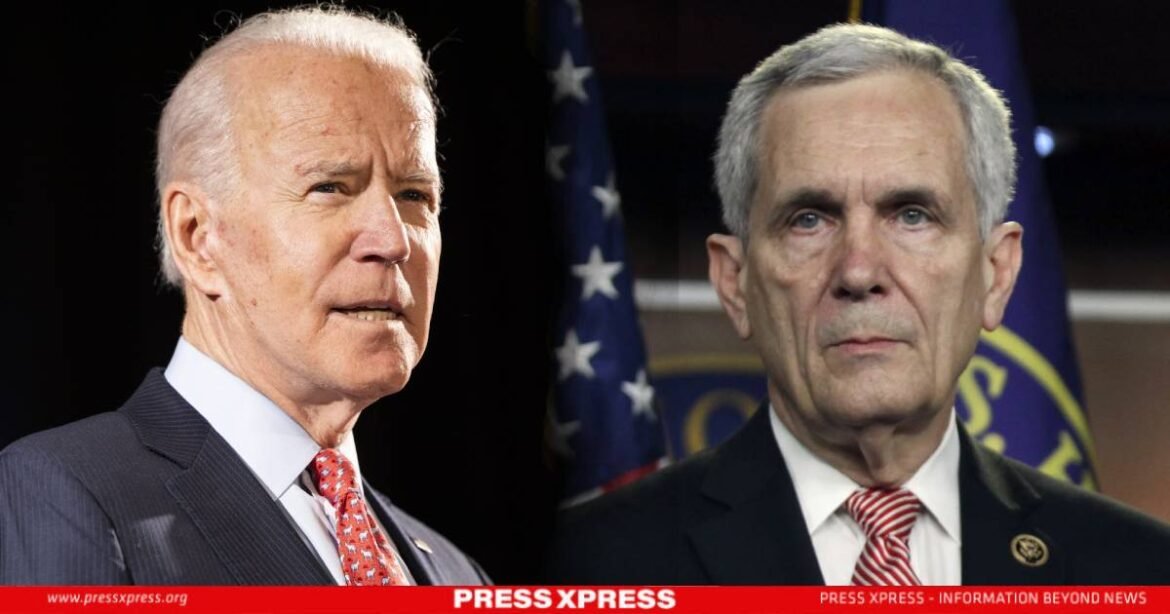- US Rep. Lloyd Doggett, D-Austin, urges President Biden to withdraw as the Democratic nominee for the 2024 election
- Doggett criticizes Biden’s debate performance against Trump and cites Biden’s trailing position in polls
- Concerns rise about Biden’s effect on Texas down-ballot races like Rep. Colin Allred’s challenge against Sen. Ted Cruz
In a surprising development, U.S. Rep. Lloyd Doggett, D-Austin, has made an unprecedented call for President Joe Biden to withdraw as the Democratic nominee for the upcoming presidential election. Doggett, a veteran politician at 77 years old and the first Democratic member of Congress to take such a stance, pointedly criticized Biden’s recent debate performance against former President Donald Trump as the primary catalyst for his request. Doggett expressed deep reservations about Biden’s ability to effectively defend his accomplishments and counter Trump’s rhetoric, highlighting Biden’s persistently low polling numbers compared to Democratic senators in crucial states and his trailing position behind Trump in various polls.
You can also read: UK Election Live: UK Braces for a Final Political Shift today
Doggett’s statement has elicited a range of responses within the Democratic Party. Former Housing and Urban Development Secretary Julián Castro has aligned with Doggett’s call for Biden’s withdrawal, advocating for considering alternative candidates such as Vice President Kamala Harris. The fallout from Biden’s debate performance has particularly unsettled Texas Democrats, who are navigating competitive down-ballot races, including critical contests for the U.S. Senate. Despite concerns raised by Doggett and Castro, many party members have rallied behind Biden, while others have opted to remain silent on the contentious issue.
The call by Doggett underscores significant internal deliberations within the Democratic Party regarding Biden’s candidacy and the implications for the upcoming election.

How are Other Democrats Reacting?
While some Democrats have expressed support for Doggett’s position, others have firmly stood by President Biden. U.S. Rep. Sylvia Garcia, D-Houston, and U.S. Rep. Lizzie Fletcher, D-Houston, both issued statements reaffirming their support for Biden and Harris. U.S. Rep. Al Green, D-Houston, emphasized Biden’s accomplishments and asserted that one debate shouldn’t derail the campaign.
U.S. Rep. Vicente Gonzalez, D-McAllen, pointed out the irony of a 77-year-old asking an 81-year-old not to run, suggesting that people might be jumping to conclusions too quickly.
Potential Impact on Down-Ballot Races
The concern among Democrats extends beyond the presidential race. Biden’s performance could potentially impact down-ballot races in Texas if disenchanted Democrats choose to stay home on Election Day. Key races include U.S. Rep. Colin Allred’s bid to unseat Sen. Ted Cruz and several competitive congressional districts.
Lloyd Doggett, a fixture in Texas Democratic politics since 1995, has a long history of progressive stances. While he has supported Biden in the past, he now believes that the president does not have the best chance of challenging Trump among the party. Doggett emphasized the urgency of taking on a former president who he believes would be detrimental to the country’s democracy.

What Happens if Biden Were to Withdraw?
If Biden were to withdraw, Democrats would need to select a new candidate at their national convention in Chicago this August. Doggett, drawing parallels to Lyndon Johnson’s withdrawal in 1968, believes that this year’s convention would be more peaceful despite potential political uncertainties.

While Doggett did not endorse any specific alternative candidates, he mentioned that several party members, including governors, senators, and Vice President Kamala Harris, could potentially make viable runs for the presidency.
Despite the calls for withdrawal, President Biden has shown no interest in stepping aside. He and his surrogates have been actively engaging with donors and Democratic elected officials to address concerns and maintain campaign funding. Biden has also taken to the rally stage to acknowledge his shortcomings while reassuring voters of his capability to lead.
What’s Next for the Democratic Party?
As the situation unfolds, the Democratic Party finds itself at a crossroads, balancing loyalty to their incumbent president with concerns about electability in the face of a formidable opponent in Donald Trump. The coming weeks and months will likely see intense discussions and potential shifts in strategy as the party prepares for the crucial 2024 election.
Shifting Sentiments and Public Debate
However, just five days later, a CNN poll revealed that a majority of voters believe Democrats would fare better with a different nominee. This development has prompted some Democrats, including influential figures like Rep. Lloyd Doggett, to openly question Biden’s viability against former President Trump. Doggett, representing a secure Democratic district, highlighted Biden’s persistent polling deficit behind Trump as a critical concern.

Top congressional leaders such as former Speaker Nancy Pelosi initially defended Biden’s candidacy over the weekend but appeared to shift their stance by Tuesday. Pelosi, in an interview on MSNBC, acknowledged the legitimacy of concerns about Biden’s ability to continue effectively, signaling a potential opening for broader debate within the party.
Concerns About Down-Ballot Races and Public Statements
The debate fallout has also raised anxieties about the impact on down-ballot Democratic candidates. Rep. Mike Quigley expressed reservations about Biden’s potential to influence outcomes beyond the presidency, emphasizing the long-term implications for congressional and Senate races.
Meanwhile, voices from swing districts have grown more vocal. Reps. Jared Golden and Marie Gluesenkamp Perez publicly speculated that Biden might lose to Trump in 2024, citing his debate performance as a critical factor. Their statements reflect a broader sentiment among some Democrats who question Biden’s electability against a formidable opponent like Trump.
In response, the House GOP’s campaign arm criticized Democrats for what they perceive as timidity in addressing concerns about Biden’s candidacy, accusing them of avoiding direct public commentary on the president’s performance. This critique underscores growing partisan tensions and the potential electoral consequences facing Democrats as they navigate internal divisions ahead of the upcoming elections.


